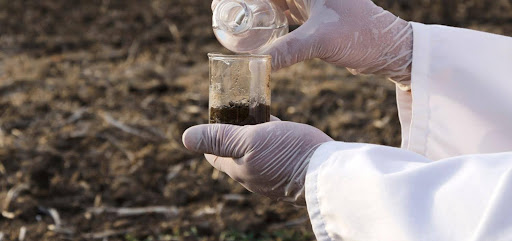In the world of construction, where every structure’s stability and longevity depend on the soil beneath, soil testing emerges as an unsung hero. Understanding the significance of soil testing in construction is paramount, and at Certified Material Testing Products, we are dedicated to providing high-quality soil testing machinery and equipment. In this comprehensive guide, we will explore the vital role of soil testing in construction and how our products can be instrumental in ensuring your projects are built on a solid foundation.
The Importance of Soil Testing in Construction
Before embarking on any construction project, regardless of its scale, it’s imperative to assess the characteristics of the soil at the site. Soil testing is the process by which engineers and builders gather data about the soil’s properties, including its composition, density, moisture content, and load-bearing capacity. This information is critical for making informed decisions during the design and construction phases.
Types of Soil Testing
Soil testing encompasses various methods and analyses, each serving a specific purpose. Here are some common types of soil testing:
1. Geotechnical Testing:
Geotechnical testing focuses on understanding the mechanical properties of the soil, such as its strength, compressibility, and shear resistance. This data is essential for foundation design and slope stability assessments.
2. Chemical Testing:
Chemical testing evaluates the chemical composition of the soil, looking for contaminants or pH levels that could affect construction materials or the environment. It’s crucial in projects where soil contamination is a concern.
3. Moisture Content Testing:
Measuring the moisture content of soil is crucial for assessing compaction characteristics. Compacted soil ensures proper foundation support and stability.
4. Soil Classification Testing:
This type of testing categorizes soil based on grain size and plasticity, aiding in selecting suitable construction materials and foundation design.
The Benefits of Soil Testing
The advantages of conducting soil testing for your construction projects are significant:
- Risk Mitigation:
Soil testing helps identify potential issues early, reducing the risk of costly surprises during construction.
- Optimized Design:
Engineers can tailor designs to suit the specific soil conditions, ensuring safety and efficiency.
- Cost Savings:
Accurate soil data prevents over-engineering, saving both time and money.
- Regulatory Compliance:
Many jurisdictions require soil testing as part of the permitting process to ensure public safety and environmental protection.
The Soil Testing Process
Performing soil testing involves several steps, including sample collection, laboratory testing, and data analysis. It’s a meticulous process that demands the right equipment and expertise. This is where Certified Material Testing Products enters the picture.
Choosing the Right Soil Testing Equipment
Our extensive range of soil testing machinery and equipment is designed to meet the diverse needs of construction professionals. Whether you require soil compactors, moisture testers, or particle size analyzers, we have you covered. Our equipment is renowned for its accuracy, durability, and user-friendliness, making your soil testing process efficient and reliable.
Certified Material Testing Products: Your Soil Testing Solution
At Certified Material Testing Products, our commitment is to provide high-quality products at competitive prices, exceeding your expectations. Our highly-trained Customer Service Representatives and experienced technical staff are here to support you. We offer one of the largest selections of materials testing equipment, including aggregates, asphalt, concrete, and soils. In addition to our core products, we offer ovens, balances, and general lab equipment to fulfill all your lab supplies and equipment needs.
Conclusion
In conclusion, soil testing is an indispensable part of construction projects. It empowers engineers and builders with essential data to make informed decisions, mitigate risks, and optimize designs. Certified Material Testing Products is your trusted partner, offering a comprehensive range of soil testing machinery and equipment to ensure your construction projects stand the test of time.
Expand your scope to soil testing, and discover how our products can assist you in creating a solid foundation for your construction endeavors. Whether you’re in Ottawa, California, or anywhere else, count on Certified Material Testing Products for your soil testing needs. With our dedication to quality, competitive pricing, and extensive product selection, we are here to help you succeed in your construction endeavors, providing you with the tools and knowledge needed to build a brighter future.

